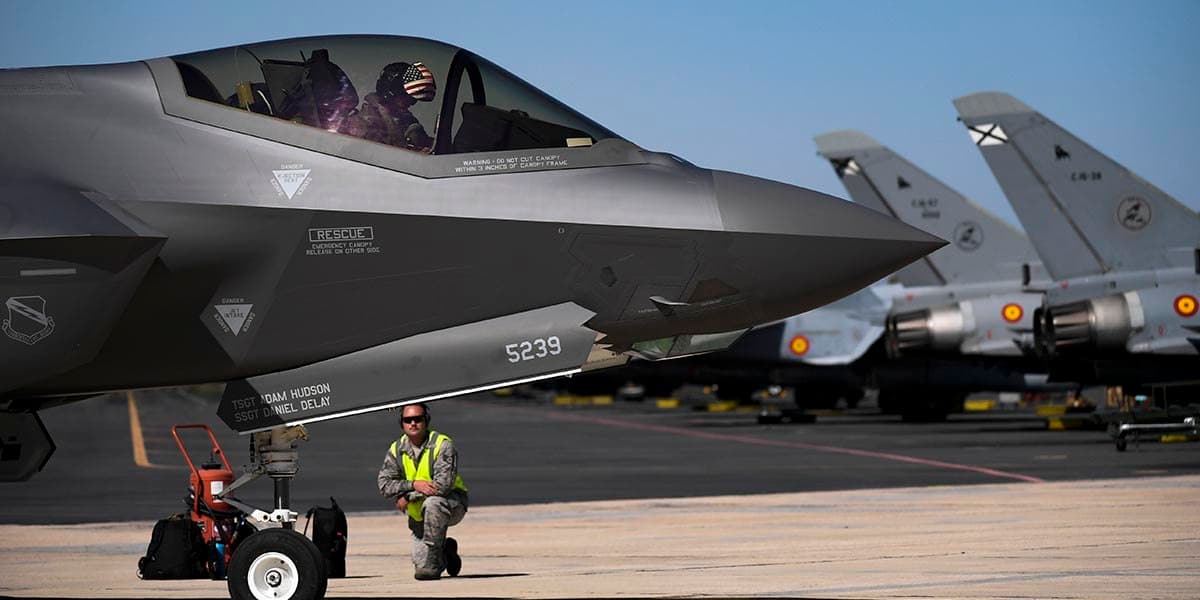Spain Redirects €6.25 Billion Defense Budget, Cancels F-35 Purchase for European Jets
Spain has made a significant shift in its defense strategy by scrapping plans to purchase Lockheed Martin"s F-35 fighter jets. The Spanish government will redirect the allocated €6.25 billion towards acquiring European-made military equipment, signaling a robust commitment to strengthening regional defense capabilities and industries. This decision was reported by El Pais and marks a pivotal moment in Spain"s military procurement approach.
Background & Context
The decision to abandon the F-35 program comes in the context of heightened geopolitical tensions and a growing emphasis on national and regional self-reliance in defense procurement. The F-35, renowned for its advanced stealth capabilities and multi-role versatility, was initially seen as a cornerstone of modernizing Spain"s air force. However, the increasing focus on European defense collaboration has led to a reassessment of this strategy.
Spain"s move aligns with broader trends within NATO and the European Union, where member states are increasingly advocating for the development and procurement of homegrown defense technologies. The shift is perceived not only as a response to external threats but also as a means to stimulate domestic defense industries, create jobs, and enhance technological innovation within Europe.
Key Developments
Spain"s decision to cancel the F-35 purchase has been met with a mixture of support and skepticism. Proponents argue that redirecting funds to European manufacturers will bolster the continent’s defense capabilities and reduce dependency on U.S. military technology. Spain"s Defense Minister has emphasized that this strategy will allow for more integrated defense solutions that better respond to regional security challenges.
While specific details regarding the new European jets have yet to be disclosed, the Spanish government is expected to explore options from established manufacturers such as Airbus and Dassault Aviation. This pivot is part of a larger trend within Europe, where countries are increasingly looking to collaborate on defense projects, as seen in initiatives like the Future Combat Air System (FCAS) involving France, Germany, and Spain.
Broader Impact
The implications of Spain"s decision extend beyond its borders, potentially reshaping defense procurement strategies across Europe. Analysts suggest that this move could catalyze a wave of similar decisions among other NATO allies, particularly those facing budgetary constraints while trying to modernize their military forces. This could lead to a more unified European defense posture, which has been a long-term goal for EU leaders.
Furthermore, this shift could have significant economic ramifications. By investing in European defense industries, Spain is likely to create jobs and stimulate innovation in technologies that could have civilian applications as well. Experts argue that this approach could foster a more resilient and self-sufficient defense sector within Europe, reducing reliance on external suppliers and enhancing collective security.
What"s Next
As Spain moves forward with this strategic pivot, the focus will be on identifying suitable European alternatives to the F-35 and establishing partnerships with local manufacturers. The Spanish government is expected to initiate discussions with various European defense firms to explore available options and technological capabilities.
In addition, Spain"s decision may influence upcoming NATO summits and discussions surrounding defense spending and procurement policies. With the increasing urgency of addressing security threats, the emphasis on collaborative European defense initiatives is likely to gain momentum. Analysts will be closely monitoring how this decision impacts future military collaborations and whether other nations follow Spain"s lead in prioritizing regional defense manufacturing over foreign procurement.


![[Video] Heavy clashes and gunfire reported in Baghdad, Iraq](/_next/image?url=%2Fapi%2Fimage%2Fthumbnails%2Fthumbnail-1768342239932-848qsh-thumbnail.jpg&w=3840&q=75)




![[Video] Gunfire between Iraqi security forces and Sadr militias in Baghdad](/_next/image?url=%2Fapi%2Fimage%2Fthumbnails%2Fthumbnail-1768343508874-4redb-thumbnail.jpg&w=3840&q=75)
